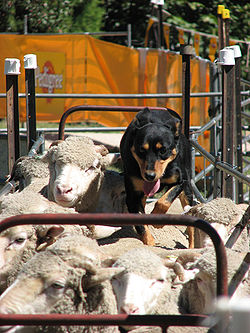
Domestication
We found 4 free papers on Domestication
Essay Examples
Overview
Dogs Are Man’s Best Friends
Animals
Dog
Domestication
Friendship
Zoology
Dogs make great pets because they are so friendly. The title ‘Man’s bestfriend’ perfectly suits dogs. Majority of people around the world have dogs as pets than any other animal in the planet. The qualities of dogs make them wonderful pets which creates a sense of friendliness and ease for the pet owner. Dogs…
Siberian Huskies Are Classic Northern Dogs
Animals
Dog
Domestication
Zoology
Siberian Eskimo dogs are thought to hold come from Siberia when there was a land span between Alaska and Siberia. The Siberian Husky has some really unusual features. Some of the features are behavioural and some are physical. Overall the Siberian Husky is a beautiful, trusty and loyal comrade to its maestro and household. Some…
Dynamics of founder effect
Africa
Biology
Domestication
Genetics
An Introduction Into the Dynamics of the Founder EffectPopulations are divided by geographic boundaries, confining a specific region/group of people to share and distribute its genetic traits within themselves without outward influence. The size of these populations is dependant upon whether certain mountains, rivers, deserts, oceans, or other extreme geographical, cultural, or technological conditions determine…
Siberian Huskies Essay, Research Paper
Animals
Dog
Domestication
Siberian Eskimo dogs are thought to be posterities of Chukchi sled which lived in the Siberian Arctic. For over 3,000 old ages these Canis familiariss have been utilized to draw sleighs and heard caribou in the north-polar. These Canis familiariss have the alone ability to go highly long distances on little sums of nutrient doing…
| description | Domestication is a sustained multi-generational relationship in which one group of organisms assumes a significant degree of influence over the reproduction and care of another group to secure a more predictable supply of resources from that second group. |
|---|---|
| information | Rules: In his book Guns, Germs, and Steel, Diamond argues that to be domesticated, animals must possess six characteristics: a diverse appetite, rapid maturation, willingness to breed in captivity, docility, strong nerves, and a nature that conforms to social hierarchy. Stages: The first group proposed that animal domestication proceeded along a continuum of stages from anthropophily, commensalism, control in the wild, control of captive animals, extensive breeding, intensive breeding, and finally to pets in a slow, gradually intensifying relationship between humans and animals., |
Frequently Asked Questions about Domestication
Don't hesitate to contact us. We are ready to help you 24/7

